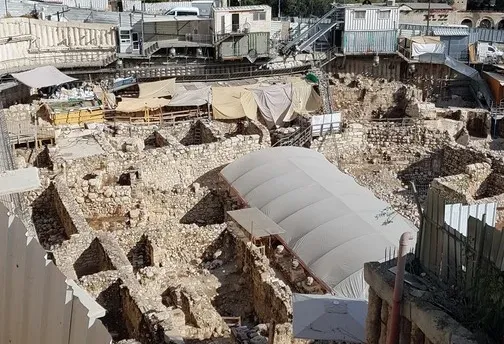
Rubio Visits Jerusalem Archeological Site, Backs Israel Claims
US Senator Marco Rubio recently visited an archeological site in Jerusalem, a move widely interpreted as a show of support for Israel’s claims to the city and its historical narrative. The visit took place at a site near the Temple Mount, an area of significant religious and political sensitivity.
Rubio’s visit is seen as a symbolic gesture, reaffirming the United States’ recognition of Jerusalem as Israel’s capital. The Senator’s presence at the archeological site highlights the historical connection between the Jewish people and Jerusalem, a key element in Israel’s claim to sovereignty over the city.
During the visit, Rubio emphasized the importance of preserving historical sites and understanding the rich history of the region. He also reiterated the US commitment to Israel’s security and its right to defend itself.
The archeological site visited by Rubio showcases artifacts and structures dating back thousands of years, providing tangible evidence of Jewish presence in Jerusalem. The site is a popular destination for tourists and scholars interested in exploring the city’s ancient past.
The visit has drawn mixed reactions. Israeli officials have welcomed Rubio’s visit, viewing it as a sign of strong US-Israel relations. Palestinian leaders, however, have criticized the visit, arguing that it undermines their claims to East Jerusalem and reinforces Israeli control over the city.
The status of Jerusalem remains one of the most contentious issues in the Israeli-Palestinian conflict. Israel considers the entire city its unified capital, while Palestinians seek East Jerusalem as the capital of a future Palestinian state. The international community generally does not recognize Israel’s sovereignty over the entire city.
Rubio’s visit underscores the ongoing debate surrounding Jerusalem and the challenges of finding a peaceful resolution to the conflict. It also highlights the importance of historical narratives and archeological evidence in shaping political claims and national identities.
The visit comes amidst heightened tensions in the region, with ongoing violence and political instability. The US has been actively involved in efforts to mediate between Israel and the Palestinians, seeking to de-escalate tensions and promote a two-state solution.
Senator Rubio’s visit to the Jerusalem archeological site serves as a powerful reminder of the deep historical and political significance of the city and the enduring complexities of the Israeli-Palestinian conflict.
The visit has sparked discussions about the role of archaeology in shaping national narratives and the importance of preserving historical sites for future generations. It also raises questions about the ethical considerations of using archeological evidence to support political claims.
Disclaimer: This news article is based on publicly available information and may be subject to updates.




